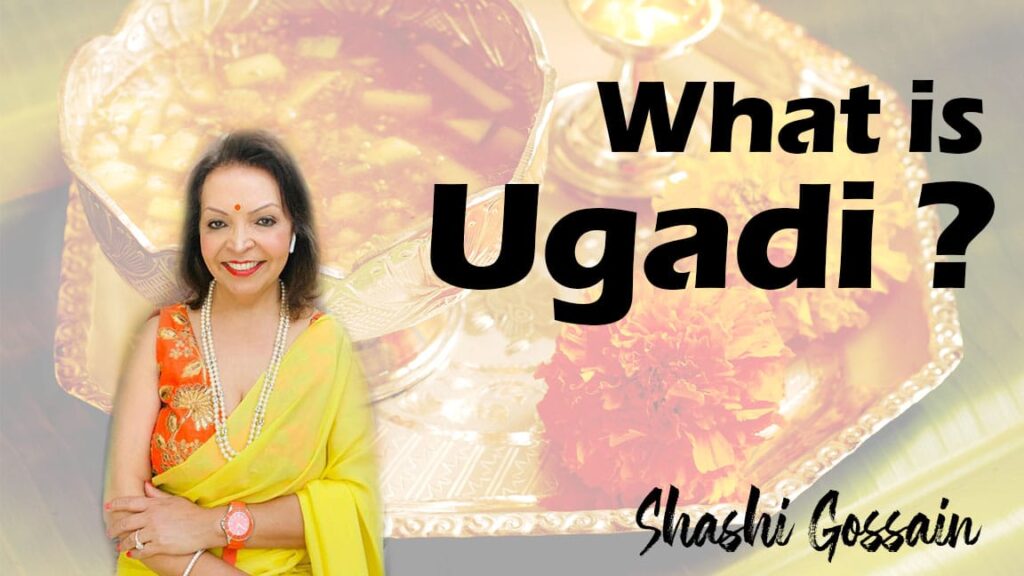India is not only the land of festivals, but it is also a huge sub-continent, where the same festivals are called by different names, with slight local variations of how it is celebrated.
Why is Ugadi celebrated as New Year?
The first day of the Hindu lunisolar calendar falls in the month of Chaitra. This day is celebrated as Ugadi festival. It is believed that on this day, Lord Brahma created the universe, days, months, and years, the vital elements of nature and fates of people according to zodiac signs. Ugadi comes from a combination of two Sanskrit words, ‘Uga’ and ‘Adi’. “Uga” comes from yuga, meaning “age of time” & “adi” meaning “beginning” So Ugadi means “the beginning of a new age”.
When is ugadi in 2021?
Tuesday, 13 April 2021.
What is ugadi called in North India?
Ugadi festival is also the beginning of the harvest festival, is called:
- Gudi padwa in North India
- Ugadi in States of Andhra Pradesh, Telangana & Karnatka
- Gudhi Padwa in Marathi
- Yugadi in Kannada
- Cheti Chand by Sindhis
What is the story of Ugadi?
There is a legend associated with Ugadi festival. There was once a demon called Somakasura, who stole the Holy Scriptures, called the Vedas from Lord Brahma and hid them in the Sea. Lord Brahma asked Lord Vishnu for help to get the Vedas, back from Somakasura. Lord Vishnu took up his first of the 10 incarnations, called “Matsya”, and killed the demon Somakasura. Lord Vishnu then returned the Vedas to Lord Brahma, who started creating the world on Ugadi.
How is ugadi calculated?
Even today, Ugadi festival is celebrated with great joyous fanfare, with preparations that are started a few days before. Every festival in India begins with a refreshing oil bath and hair wash ritual, known as Abhyanga. The benefits of Abhyanga, (rooted in Ayurveda) have been studied widely and is identified as one of the most non-invasive and relaxing ways to maintain good health. On this day, Goddess Lakshmi is symbolically represented by the oil and Goddess Ganga as the water by taking the bath with the oil and water, it is believed that we will get the blessings of both Lakshmi and Ganga. On this day Houses are given a thorough spring clean, Rangoli: patterns using colourful powder are drawn on the floor, Coconut & mango leaf decorations are hung over doors (which is considered auspicious). Celebrations are shared with the extended family, friends & neighbours sumptuous feasts, exchanging gifts, giving charity to the poor and visiting the temple for special blessings & prayers. There is special reading out of ‘Panchangam” form the Vedas by the eldest member of the family or a learned priest, who takes the role of an Oracle giving out predictions for the upcoming year. The predictions are based on the moon signs and accompanied by hymns and chants to usher in a good year.
Why do we eat ugadi Pachadi?
A special, festive drink called pachadi is prepared and shared on Ugadi festival, which is a combination of six different flavours: spice, salty, sweet, sour, bitter, and astringent. Our life will be a mixture of joy & sorrow. This is a symbolic reminder that one must expect all experiences in life and to face all situations with equality. It’s made up of 6 flavours, representing six states of our emotion:
- Happiness: Sweet: Jaggery and ripe banana pieces
- Sadness: Sour: Neem Buds/Flowers
- Anger: Spicy: Green Chilli
- Fear: Salt
- Surprise: Astringent: unripe mango
- Disgust: Bitter: Tamarind Juice
Just as the different substances are bound together, one is reminded that no event or episode is wholly good or bad. We are reminded that the experience of taste is transitory & so too, is life and one has to learn to put pain and pleasure in a transient perspective. This ritual serves as the perfect understanding of the importance and the inevitability of every human emotion.



